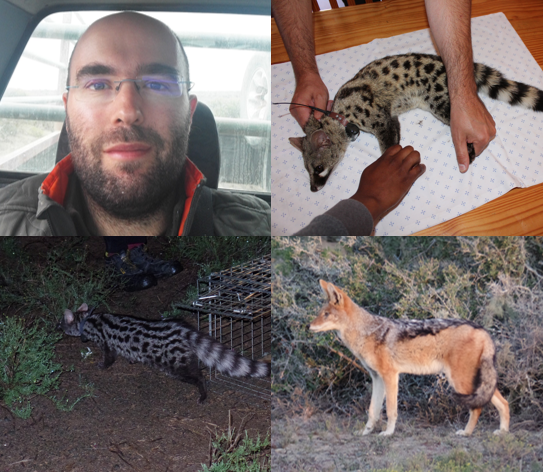My research project describes the factors influencing the coexistence of mesocarnivores under a large-predator-free scenario at Great Fish River Reserve and a Large predator scenario at Kwandwe Private Game Reserve, Eastern Cape, South Africa. Mechanisms behind ecological segregation will be assessed by combining results from camera-trapping, telemetry, and diet. Specific objectives are to (1) quantify home ranges sizes, distance movements, etc. (2) assess temporal segregation in activity patterns; and (3) evaluate diet segregation. This is important as it allows to describe the basic ecology of some mesocarnivore species for the first time, and secondly how trophic webs might or not be disrupted.
Although my answer to that is yes, I only have anecdotal evidence of that, since any specific study was developed in the area. Still, we have noticed a very high abundance of jackals (assessed through hundreds of field workdays and a 1-year survey of camera traps monitoring) at the Great Fish River Reserve (Eastern Cape, South Africa) due to the lack of large predators o control them. We know that dispersing jackals are leaving the reserve and tried to colonise surrounding areas including farms where they prey on livestock. This type of behaviour has been described across South Africa.

